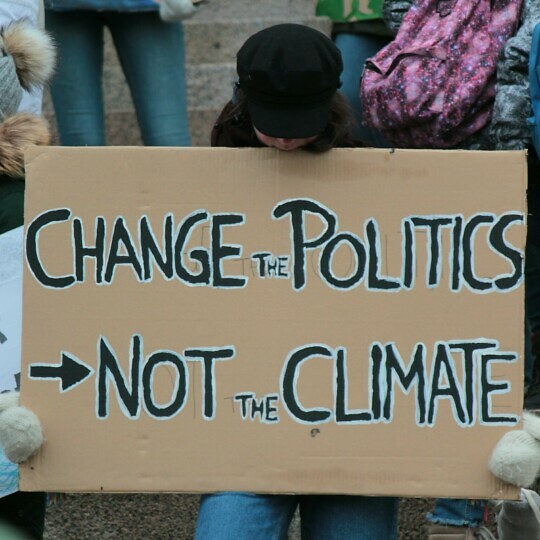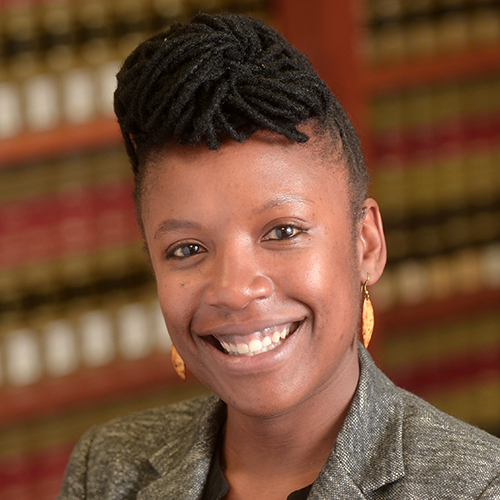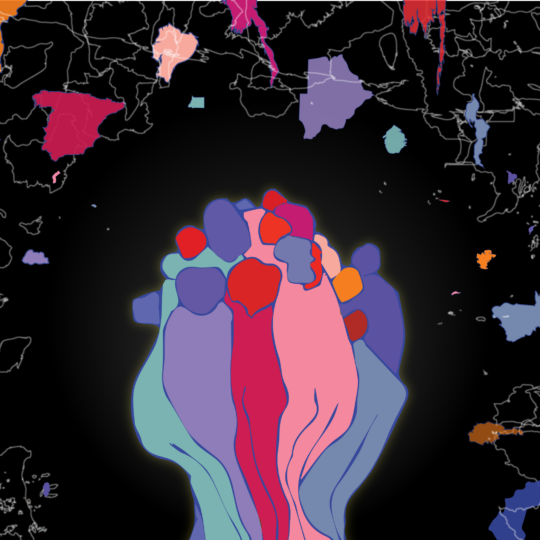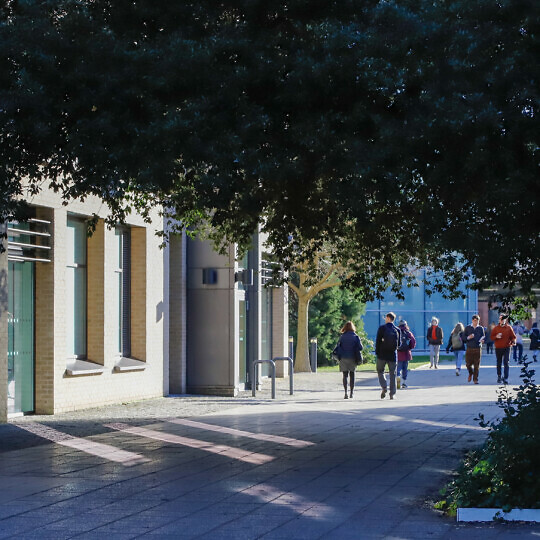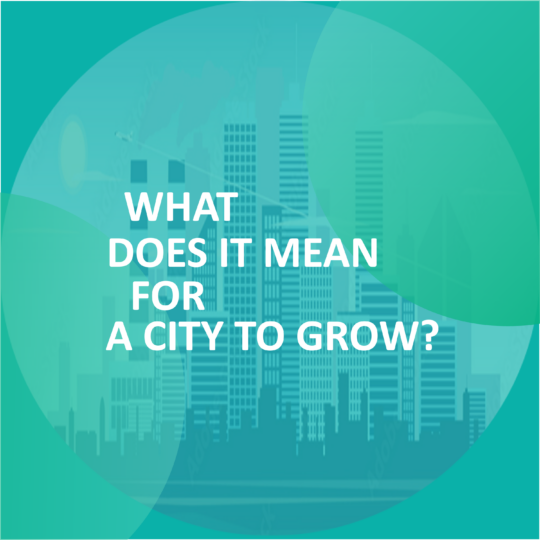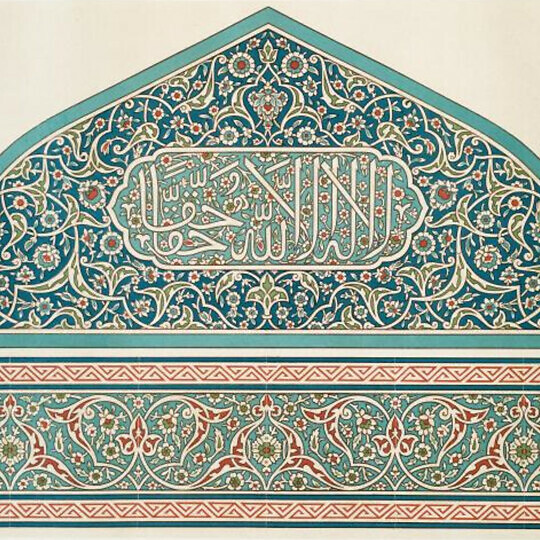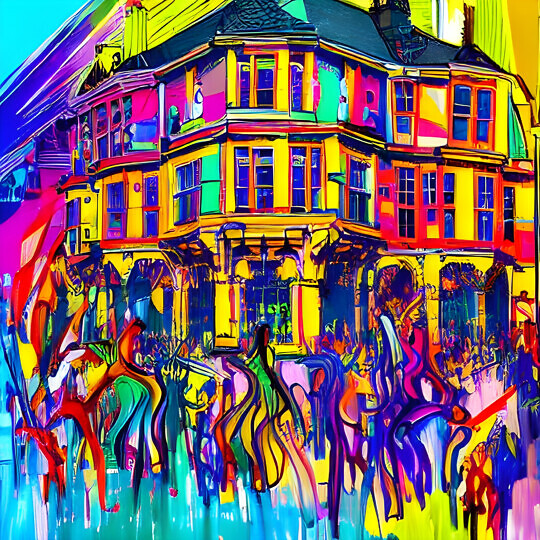| 22 Mar 2021 - 26 Mar 2021 | All day | ONLINE | |
- Description
- Programme
- Abstracts
Description
Sign up to the CRASSH Newsletter for more information and updates on this conference.
Convenors
Hakan Sandal-Wilson (he/him)
Marcin Smietana (he/him)
Keynote Discussion
Rahul Rao (SOAS, University of London): Keynote
Jasbir Puar (Rutgers University): Keynote Response
Summary
Authoritarianisms and a right-wing populist resurgence across the globe are once again responsible for a sweeping range of violations. While some groups have been exposed to the cold face of oppression only recently, other groups have long been subjected to similar abuses, ranging from discrimination to direct physical harm. In Turkey under the Erdoğan regime, for example, academics in 2016 calling on the government to end its human rights violations against the Kurds in its southeast and demanding a peaceful solution to the Kurdish issue were subjected to exhausting administrative and legal sanctions. Anti-Muslim sentiment and practices are being constantly provoked by the Modi Regime in India. In Russia, Putin is relying on fuelling nationalism to ever expand his powers. Trump, like Putin and Bolsonaro, has harnessed nationalist discourses that work along racial, ethnic, and religious lines and frequently this is built off of dis/misinformation. Therefore, while racial, ethnic and religious identity formations and mobilisations are readily apparent in the context of authoritarianism and conflict, this conference seeks to move beyond this focus and complicate our understanding by bringing non-normative sexualities into the picture.
In countries where nationalisms are resurging, the very term ‘queer’ as well as queer and LGBTIQ+ politics have been framed and rejected by dominant narratives as ‘Western’ and ‘colonial’, both in much of the scholarship (Kulpa & Mizielinska 2012) as well as by authoritarian nationalists. But LGBTIQ+ people in these countries do not necessarily agree with such analyses, which they see as simplified narratives, and instead see their activism as vital to political resistance, and much more complex. (TallBear 2018; Luther & Ung Loh 2018; Slany, Kowalska & Smietana 2005; Popa & Sandal 2019). Dynamics of this kind occur in locations as distinct as, for example, North America, South Asia, the Middle East, and Eastern Europe. However, in reality, situations can be even more complex: e.g. in Kashmir, the colonial narratives are seen to be coming from the Indian state rather than only from ‘the West’ (Anand, 2019). On the other hand, emergent nationalisms in some other places are framed as gay-friendly, to the extent of being critiqued as ‘homonationalist’ (Puar 2007). Stigmatisation of geographies, ethnicities, and religions, in some instances, in the name of LGBTIQ+ rights, perpetuate and justify Islamophobia, for example, in the United Kingdom (Ahmed 2011). Conversations such as the one we are proposing with this conference are crucial at this current time of a resurgence of right-wing nationalisms, and their frequent ‘anti-gender’ and anti-LGBTIQ+ framing (Patternotte & Kuhar 2018; Takács and Szalma 2019).
This interdisciplinary conference will bring together scholars and activists working on and campaigning against authoritarianisms and right-wing attacks on democracy through a queer perspective. By queering authoritarianisms, we mean making visible LGBTIQ+ lives and politics which resist authoritarian and undemocratic politics. However, we also rest on the ambiguity and potential that ‘queer’ has to offer. Following the Keynote Discussion with the participation of Dr Rahul Rao (Keynote) and Professor Jasbir Puar (Response), there will be four academic sessions on themes such as ‘Queer and Conflict’, ‘The Gendered and Sexual Politics of Authoritarianisms’, ‘Authoritarianisms Caught in the Web: Queer Digital Activisms’ and ‘Decolonising Sexualities’ in addition to workshops including ‘writing amidst conflict’ and ‘transnational LGBTIQ+ activisms and care’. We intend for this conference to initiate fruitful conversations and intersectional solidarities among academics, activists, and academic activists.
Supported by:
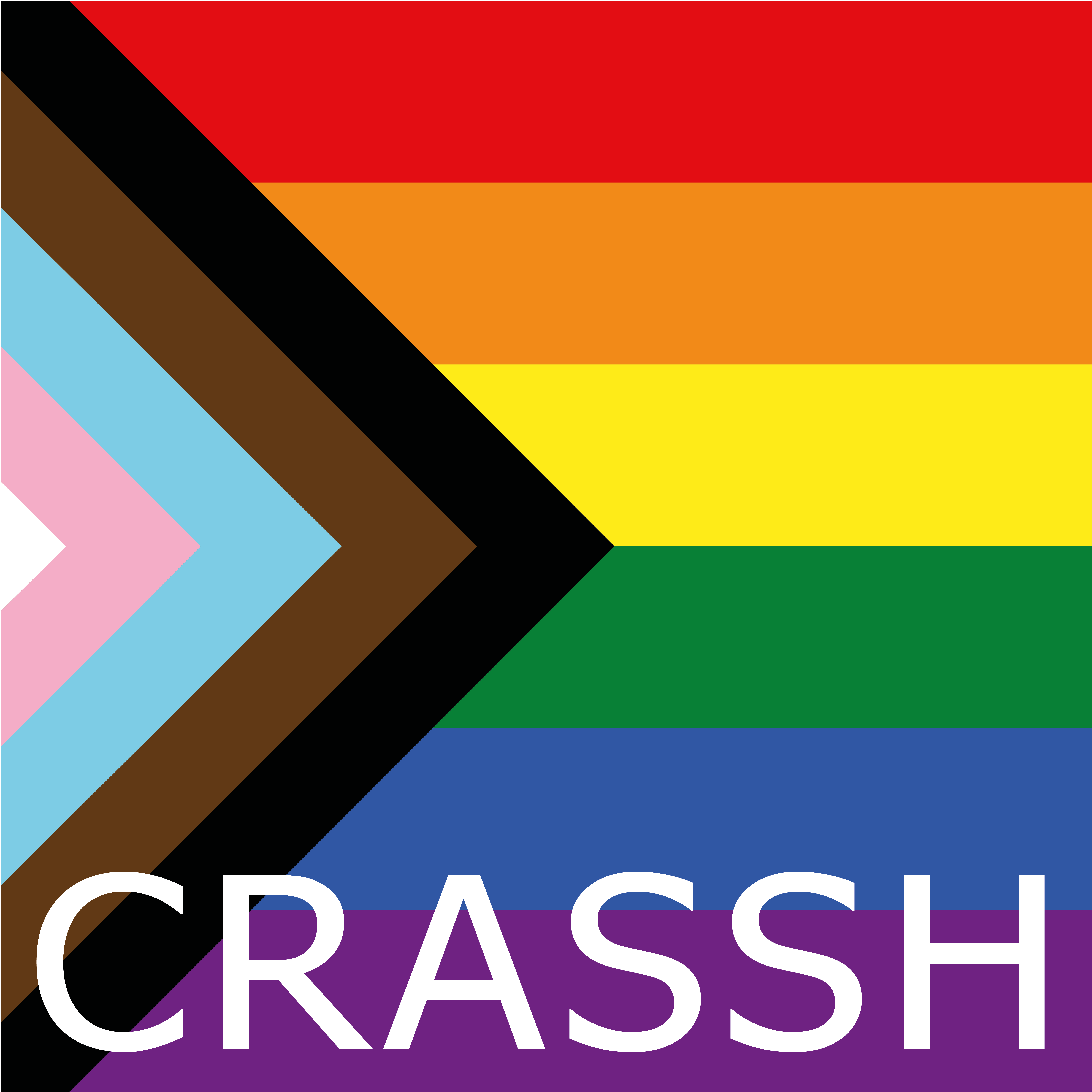

If you have any specific accessibility needs for this event please get in touch. We will do our best to accommodate any requests.
Conference assistance: events@crassh.cam.ac.uk
Programme
“Queering Authoritarianisms: Conflict, Resistance, and Coloniality” 22-26 March 2021
Convenors: Hakan Sandal-Wilson (University of Cambridge) Marcin Smietana (University of Cambridge) All events will be live streamed on CRASSH’s YouTube channel. |
|
| 17.00 - 18.30 (GMT) | Monday 22 March Rahul Rao (SOAS, University of London): Keynote Title: ‘What is the Relationship Between Homonationalism and Homocapitalism?’ Chair: Sarah Franklin (University of Cambridge) |
| 16.00 - 17.30 (GMT) | Tuesday 23 March This panel will discuss different ways in which conflict and queer can be thought together. We think about ‘conflict’ broadly, being wary of confining conflict to already stigmatised and marginalized geographies. We think about different conflict-enabling structures, such as neoliberalism, nationalism, colonialism and authoritarianism, and how queer politics can make interventions into them. Chair: Jamie J. Hagen (Queen’s University Belfast)
|
| 16.00 - 17.30 (GMT) | Wednesday 24 March Panel 2: The Gendered and Sexual Politics of Authoritarianisms ‘The Gendered and Sexual Politics of Authoritarianisms’ panel aims to discuss various ways in which gender and sexuality inform different kinds of authoritarian politics. From knowledge production about gender, to legal interventions, to disrupting state enforced ways of thinking, this panel will expand our understanding of gender and sexuality in the context of authoritarianisms. Chair: Lauren Wilcox (University of Cambridge)
|
| 16.00 - 17.30 (GMT) | Thursday 25 March Panel 3: Authoritarianisms Caught in the Web: Queer Digital Activisms How do digital activisms alter the ways in which we think about mobilisation, and affect? Do they help us counter authoritarian states and open up queer spaces, or do they become means of authoritarian discipline and control? Seeking answers to these questions, this panel will situate digital activism at the core of authoritarian politics and objections to them. Chair: Daniel Luther (London School of Economics)
|
| 16.00 - 17.30 (GMT) | Friday 26 March Panel 4: Decolonising Sexualities What does it mean to decolonise sexualities? How can we think about sexualities in a broader history of colonialism, exploitation, and racism? Furthermore, what different practices and ways of producing knowledge can help us better engage with these questions? In this panel, we will be discussing different ways in which we engage with sexualities, situating them in broader context of colonialism. Chair: Mónica Moreno Figueroa (University of Cambridge)
|
WORKSHOPS |
|
| 10.00 - 12.00 (GMT) | Saturday 27 March Queer Activism and Care: Transnational Conversations Moderator: Senthorun Raj (Keele University) Activists:
Bringing together grassroots activists from different parts of the world and contexts, this workshop aims to provide a space to listen to one another’s experiences. Where are we situated in relation to each other’s struggles? Why should we, and how can we, care about these struggles in the face of growing authoritarianisms? Queer activists invited for this workshop will share the issues they are dealing with or struggling against, and then we will be discussing how to forge solidarities to help identify, transform, or dismantle oppressive structures that hold up authoritarian forces. |
| 16.00 - 17.30 (BST) | Tuesday 30 March Writing in Conflict, Writing in Community Natasha Tanna (University College London) The ‘in conflict’ of the workshop’s title refers to writing amidst conflict of various sorts, including psychological and political conflict. In this workshop we will discuss the dilemmas we face when our lives, personal circumstances, political commitments and writing practices come into conflict with the norms and most valued scholarly forms in the neoliberal academy. What is lost when we try to fit the knowledges we gain through queer, feminist, and anti-racist research and practice into conventional scholarly ‘outputs’? To read more about the conversations from which the idea to hold this workshop emerged, see this blog post. |
Abstracts
Dibyesh Anand (University of Westminster, London)
Title: ‘Contemporary Colonialisms, Queering Nationalisms’
Scholarship around homonationalism has highlighted the multiple ways in which “pro LGBTQ” positions can be weaponised to support specific kinds of exclusionary nationalist positions in the West as well as to justify socio-political interventions by the West. This critique of homonationalism risks reifying the queerphobic politics in the post-colonial world as resulting from, or responding to, the West rather than acknowledge the structuring role played by queerphobia is constituting the very notion of ‘strong sovereign postcolonial nation-state’. By using examples of conflicts around China-Tibetans, China-Uyghurs, India-Kashmiris, and Turkey-Kurds relations, I’d argue that these conflicts are a product of heterosexist masculinist nationalisms practised by non-western colonialist states. I will put forward a queer ethics of subversion that goes beyond homonationalism debate to critique contemporary colonialist-nationalisms.
Antoine Badaoui (University of Leicester)
Title: ‘Transgressing Heteronormativity Online: A Study of Social Media Videos of LGBT Organisations in Lebanon’
LGBT non-profit organisations in Lebanon use social media videos to foreground the rights of sexual minorities in a society that institutionalises homophobia. By having analysed twelve of these videos, I examine in my presentation how the organisations enact the online affordance of association and I touch upon the affordance of visibility. I state that, through the use of social media videos, the organisations facilitate information sharing among their stakeholders in a safer online environment than it would have been offline. Furthermore, Lebanese organisations use the videos to transgress existing heteronormative and homophobic structures in Lebanon. While doing so, their strategies intersect intermittently with transnational LGBT activism that does not align at all times with the peculiarities of Arab societies. Hence, Lebanese organisations invest in pan-Arab activism as well to face the common challenges that sexual minorities experience in the Arab countries. Finally, I argue that social media videos play a crucial role in LGBT advocacy and LGBT knowledge dissemination in Lebanon.
Gina Gwenffrewi (University of Edinburgh)
Title: ‘The Dungeon in the City on a Hill: on how the USA, its mainstream culture, and its carceral system decide which trans people get to be seen and unseen’
Since the 1990s, the U.S.A. has been a major centre for the transgender movement globally. It has also been the perpetrator of a punitive, racialized, and class-based system of mass incarceration, enforced or enabled by a militarized police force, a selectively punitive judiciary and political class, and the complicity of the mainstream media and publishing industry. With a focus on narrative and gate-keeping, this talk will firstly highlight the trans voices whose narratives are given mainstream media exposure in the U.S., and the ideological value they bring as embodiments of homonationalism and homonormativity. The talk will then shift to some of the narratives we don’t see in the mainstream: of transgender lives traumatized by inescapable poverty, injustice, and systemic oppression by the American State. This talk will conclude that trans identity in the U.S. reflects its social structures: that there are effectively two societies, a visible one celebrating single-issue legislations, and an occluded other calling for radical change.
Larissa Kojoué (University of Buea, Cameroon / CEPED Paris)
Title: ‘Queer digital activism in Cameroon. Exploring the dynamics of gender, sexuality and power mediated through digital cultures’
While HIV/AIDS policies have enabled and promoted the exercise of a therapeutic citizenship for LGBTQ people in Cameroon, access to the Internet and new technologies have paved the way for digital citizenship. As in most authoritarian contexts, controlled, excluded and criminalized bodies make themselves visible and make their voices heard through online media. Over the last decade, LGBT associations, collectives and identity networks have multiplied. Certainly thanks to HIV/AIDS policies which targeted gender and sexual minorities, but also thanks to the internet, social media and mobile phones. Openly out on facebook, youtube, twitter or instagram, queer individuals or collectives use online platforms as a tool of expression against the oppressions they face. However, like therapeutic citizenship, digital citizenship appears as contingent, fragile and inconsistent in an authoritarian context. Digital tools represent a continuum of violence, gender and sexual hierarchies. Therefore, challenging and transforming power structures and hierarchies through digital practices cannot be isolated from political struggles on Human rights.
Alexander Kondakov (University College Dublin)
Title: ‘Defending the Russian State from Queer Theory’
It has been almost a decade by now as Russian government has been after gender and queer studies in universities. Although this field of research had never been very well established in post-Soviet Russia, it amassed many research centres and individual scholars by the beginning of 2010s. Yet, with a direct attack on the field, especially after the introduction of the censorship ‘gay propaganda’ law in 2013, its fate remains shaky. In this presentation, I will sketch my own experience of gender and queer studies research and teaching in Russia. My aim will be to contextualise the field in a broader political context.
Ladan Rahbari (University of Amsterdam)
Title: ‘Queering Iran, Digitally: Implicit Activism and LGBTQI+ Dating on Telegram’
The Iranian state is notorious for its sexual and gender policing regime. The question of how Iranian queer ‘survive’ this inquisitive and intrusive regime of surveillance and control has attracted scholarly interest across disciplines. Additionally, different media, activist groups, and academic literature have extensively documented public spaces’ hostility to queer people in Iran. However, the existing studies complicate the imagery of queer lives and show that unruly and queer spaces, practices, and performances not only survive but can occasionally thrive (e.g., Kjaran, 2019; Rahbari, 2020). Digital spaces have sometimes presented a more viable alternative for Iranians of all genders and sexualities to identify, express, and perform non-mainstream and unruly genders and sexualities. In search of ‘safer’ territories, online dating is one aspect of the transition of queer Iranians to digital spaces. In my exploration of queer digital spaces, I came across a Persian-language Telegram channel used as an ‘LGBT’ [sic] dating platform. Telegram’s popularity in Iran since its launch in 2013 has made it one of the main digital platforms for daily interactions, accessing ‘trustable’ news, digital entertainment, and more. This dating channel is not one of a kind, but it is one of the most followed queer dating channels that I came across on Telegram with over six thousand followers. In this presentation, I will discuss preliminary findings of my research, addressing how this Telegram channel is used primarily to look for finding dating partners, but that implicit forms of LGBTQI+ solidarity manifest themselves through the channel’s content.
Evren Savcı (Yale University)
Title: ‘Neoliberal Islam and Securitization of Queers’
In this talk, I reflect on the increasing securitization of LGBTI+ marches, gatherings, and events since 2015 and the recent closing down of the Boğaziçi University’s LGBTI+ Club in Turkey with security concerns and with claims to club members being “terrorism sympathizers.” I argue that such securitization follows from the Justice and Development Party’s (AKP) neoliberal Islam, which like most neoliberal regimes ultimately turned authoritarian. The case of Turkey and neoliberal Islam requires that we rethink current frameworks that position Islam as an alternative to “Western modernity.” Such culturalization of Islam is usually enabled by discussing it only in relationship to secularity without paying attention to neoliberal capitalism. Neoliberal Islam as a domestication of neoliberalism in Turkey has woven a particular morality politics out of a government-endorsed definition of Islamic virtue to justify precarities produced by neoliberalism and to suppress any dissent to the government. Neoliberal Islam therefore is central in defining who is folded into life and national belonging, and who is left out. The deployment of LGBT politics and objects such as rainbow flags as signs of “terrorism” by a self-proclaimed moderately Islamist government invite us to rethink the relationship between queer life and terror, between Islamic virtue and submission, and between religion and the political economy.
Ayodele Sogunro (Human Rights Lawyer, Writer and PhD Candidate, University of Pretoria)
Title: ‘The nature and legacy of political homophobia in British colonial Africa: the Nigerian case’
Through the work of Weiss and Bosia as well as Serrano-Amaya, the concept of political homophobia (that is, the deliberate use of homophobia as a political strategy) has gained some recognition in academic discourse on authoritarianism and the policing of sexualities. This concept is equally useful in reengaging the issue of decolonising sexualities and relitigating the continuing impact of colonialism – particularly of the Victorian England kind – in African societies. Based on these premises, this discussion will consider the theories of political homophobia, elite power, and social exclusion to analyse the social and political context surrounding the evolution of criminalising laws during the colonial phase of Nigeria’s history. This examination will be undertaken with the intent of showing how political homophobia, through laws that delineated and criminalised transgressive sexualities, was in fact a strategic and pragmatic political – rather than merely ideological – tool utilised under the colonial administration to protect colonial interests and maintain the legitimacy of colonisation. The outcome of, and incentive for, this process of political homophobia included the social exclusion of a large majority of the colonised population for the benefit of an elite class of white administrators specifically and the benefit of the white race in general. It is argued that an understanding of the rationale behind the colonial evolution of these laws can provide insight into the continuing use of political homophobia by contemporary political actors in Nigeria and other similar legal systems in Africa.
Lukasz Szulc (University of Sheffield)
Title: ‘Uncanny Europe and Protective Europeanism: Polish queers in the UK in Times of Growing Authoritarianism’
Mid-2010s have brought some crucial political changes in Europe with rather depressive prospects for Polish LGBTQs in the UK. In Poland, the nationalist-conservative Law and Justice Party (PiS) secured most seats in the Parliament in the 2015 and 2019 elections. In the UK, British voters decided to leave the European Union in the 2016 Brexit referendum. While PiS has reenergized a queer-free vision of Polish national identity, Brexit has reinvigorated racist and xenophobic sentiments in the UK. Drawing on 30 interviews with Polish LGBTQs in the UK, I discuss my participants’ European imaginations and identifications by developing the concepts of ‘uncanny Europe’ and ‘protective Europeanness’. I show how my participants tend to view Europe as ‘diverse’, ‘open’ and ‘tolerant’, while attributing those characteristics exclusively to Western/Northern Europe. I also demonstrate that they tend to readily identify as European in the context of increasingly hostile national identities. With the growth of populist nationalisms in Europe—accompanied by intensified racism, xenophobia and Islamophobia—it remains crucial to research where the limits of European openness and tolerance are drawn and what forms European transnationalism takes, particularly at the intersections of gender and sexuality on the one hand and race, ethnicity and religion on the other.
Judit Takács (Hungarian Academy of Sciences)
Title: ‘Institutionalizing Genderphobia in Hungary’
This presentation will focus on genderphobia [a concept describing the strategic avoidance of breaking gender(ed) norms in institutional settings and in everyday life] as a fundamental feature of an expanding far-right agenda that has been playing out in practice since the “System of National Cooperation” was established by the newly elected Hungarian government in 2010. I will argue that the introduction of, for example, an unalterable ‘sex-at-birth’ record in the civil registry (proposed immediately after having declared a state of emergency to fight the coronavirus) reflects the functioning of a broader gender belief system based on assumptions about (hetero- and cisnormative) reproduction and on the deterministically distinct paths of women and men in society.
Genderphobia can be institutionalized (for instance, in the form of banning gender studies from higher educational curricula) and often internalized. It can obviously affect trans* people if they are framed as threatening the heteronormative binary gender system by their mere existence. Trans communities in Hungary and elsewhere are increasingly faced with the organized resistance against gender equality and intimate citizenship by ‘anti-gender’ movements attacking the straw man of ‘gender ideology,’ a multi-function enemy that can be shaped in different ways to fit into a political protest to protect allegedly endangered ‘traditional family values.’
Trans people have historically been – and to a great extent continue to be – largely invisible in Hungary, where state institutions were for a long time highly reluctant to deal with trans issues. In the post-socialist context, a lack of systematic legal protection and healthcare provision seem to be crucial aspects of trans citizenship (Kuhar, Monro, Takács 2018): yet questions remain whether it is just transsexual men and women’s citizenships that are sought, or citizenship rights for all gender variant people, which would entail fundamental changes in the social categorization systems of sex and gender.
Kim TallBear (University of Alberta)
Title: Settler Love Is Breaking My Heart: Sex, Kin, Country
In this talk, I analyze the roles of “love,” “sex,” and “family” within settler-colonial impositions of private property relations in the US and Canada. I draw on the work of historians, anthropologists, and science and technology studies (STS) scholars who investigate the history of state-sanctioned marriage and monogamy in the US, Hawai’i, Canada, and Europe. I also build on popular and academic polyamory literatures, Indigenous sexualities and critical race theory. I propose alternative approaches to relating drawn from (auto)ethnographic examination of eco-erotic, polyamorous, and other more-than-monogamous relating. Finally, I center the role of country—both place and music—to think through and beyond unsustainable settler-colonial practices of making relations with human and more-than-human loves.
Matthew Waites (University of Glasgow)
Title: ‘Contesting Colonial Criminalisation: The Significance of Customary Law for Decolonising Queer Analysis’
The criminal legacies of European empires for the regulation of sexualities and genders outside heterosexual norms are being contested, but attention to customary law in British colonialism disrupts existing analyses of criminalisation and decriminalisation. The British Empire criminalised sexual acts between males – and less often females – with an enduring legacy in 35 states that maintain prohibitions; yet circulations of this narrative focused on criminal law (in the English law tradition) risk ignoring where the British doctrine of ‘indirect rule’ emerged and gave formal recognition to indigenous legal practices, including in aspects of sexual life. This paper therefore focuses on how queer analyses of international legal contestations concerning lives outside heterosexual norms might be improved by consideration of customary law (understood as discourse emerging through the colonial encounter), in relation to indigenous law (the law of colonized peoples). Discussion develops from examples from Kenya, drawing on colonial reviews of customary law that sought to accurately document legal practices in the mid-twentieth century. Examples show diverse ways that different ethnic groups regulated same-sex sexual acts, as reported by community leaders. It will be argued that recognizing the existence and significance of customary law disrupts some of the narratives of decriminalisation from NGOs in (what I have previously called) the London-based transnational politics of LGBT human rights, and in Western LGBTQ activism and mainstream legal and human rights literatures more generally; but it also suggests rethinking some decolonizing analyses.


